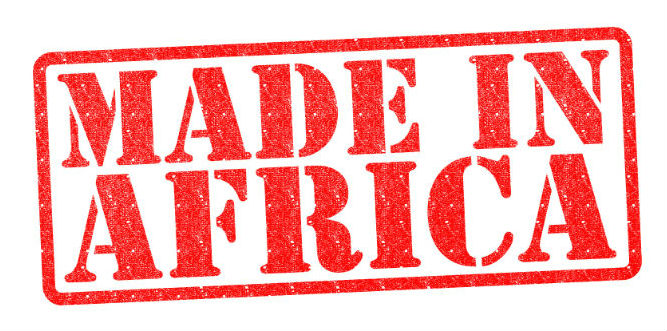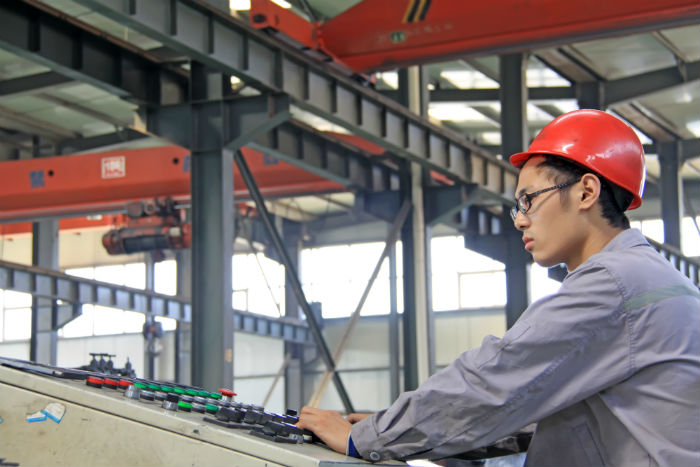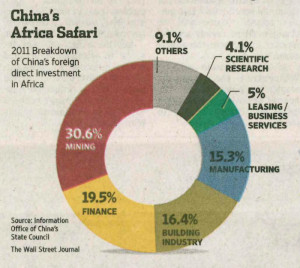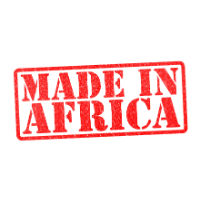“Made in China.” These three little words have become ubiquitous in almost every country, as consumers look on the back of their television sets, at the bottom of their children’s toys, and at their clothing tags and see the insignia. Almost everyone knows that when American companies talk about outsourcing or moving their manufacturing bases overseas, they are pretty much always talking about China. Chinese workers can be hired for much lower wages than people in developed countries, so on some level it makes sense.
But what happens when even Chinese workers become too expensive?
 In recent years, many major companies have begun to balk at the wages they are expected to pay Asian workers (a whopping $800 a month in many cases) and moving production to Africa, where they can hire people for about 25% less. What’s interesting, though, is that until recently companies were not hiring African workers. Instead, they would send Chinese workers abroad just so they could pay them less. They believe the Chinese tend to have more skilled laborers who can work more quickly, monitor more machines at once, and assemble products more easily.
In recent years, many major companies have begun to balk at the wages they are expected to pay Asian workers (a whopping $800 a month in many cases) and moving production to Africa, where they can hire people for about 25% less. What’s interesting, though, is that until recently companies were not hiring African workers. Instead, they would send Chinese workers abroad just so they could pay them less. They believe the Chinese tend to have more skilled laborers who can work more quickly, monitor more machines at once, and assemble products more easily.
The World Bank estimates that as many as 85 million jobs could emigrate from China to Africa in the coming years. In fact, China reported that it sent approximately 214,534 workers to Africa last year – about ¼ of the laborers it sent overseas. Investments are pouring into a number of different industries on the continent, including mining, finance, building, manufacturing, leasing, and scientific research.

This insistence on using only Chinese employees has caused quite a bit of friction in countries like Ethiopia and South Africa. Surveys report that 46% of respondents have a negative view of Chinese employment practices, and 55% agree that Chinese companies only hire Chinese workers.
Companies like China FAW Group, Huajian Group, Sinosteel Corp, and Hisene Co. have all moved operations to Africa. Some businesses have made an effort to hire locally in order to improve cultural relations and their overall image internationally. For example, nearly all of Sinosteel’s 3,000 mining, manufacturing, and trading employees were hired from the region. Businesses have also started to realize that using Chinese workers might not be as cost-effective as they once thought, since they must be fed and housed, while African employees already have homes and access to food.
 Another issue, however, is the general skill level of African workers. For example, Hisene needs thousands of engineers to staff its home appliance division, but there are only about 35,000 engineers in all of South Africa. How do you hire knowledgeable, profitable technicians in a country where there are not enough to go around? As one factory manager stated, Africa doesn’t have an “unemployment” problem, it has an “unemployable” problem.
Another issue, however, is the general skill level of African workers. For example, Hisene needs thousands of engineers to staff its home appliance division, but there are only about 35,000 engineers in all of South Africa. How do you hire knowledgeable, profitable technicians in a country where there are not enough to go around? As one factory manager stated, Africa doesn’t have an “unemployment” problem, it has an “unemployable” problem.
Nonetheless, some companies are making it work. Hisene hired all the laborers from a former television manufacturer that had gone out of business, established training programs inside the factory, and offered incentives to speed up production. Even when Chinese supervisors (most upper management officials are still brought in from abroad) raise production goals and push for a quicker pace, African workers only dare to grumble quietly to themselves. After all, they’re just happy to have a job and certainly don’t want another factory to go out of business.
Despite the extra time and energy needed to move manufacturing bases to Africa, it’s not likely that this trend will change. Africa is home to six of the ten fastest growing economies, according to the International Monetary Fund, and many African countries have begun to reduce their dependence on extracting resources like oil and gems.
The world of manufacturing is changing in a big way. Despite the many adjustments major corporations have to make, the only evidence most Americans might have of such a shift is in three little words: “Made in Africa.”






2 Comments on “Made in… Africa?! Why Some Manufacturers in China Are Making the Move”
grat review tyry not to tryhasrd in geography
We are glad you enjoyed it. Thank you!